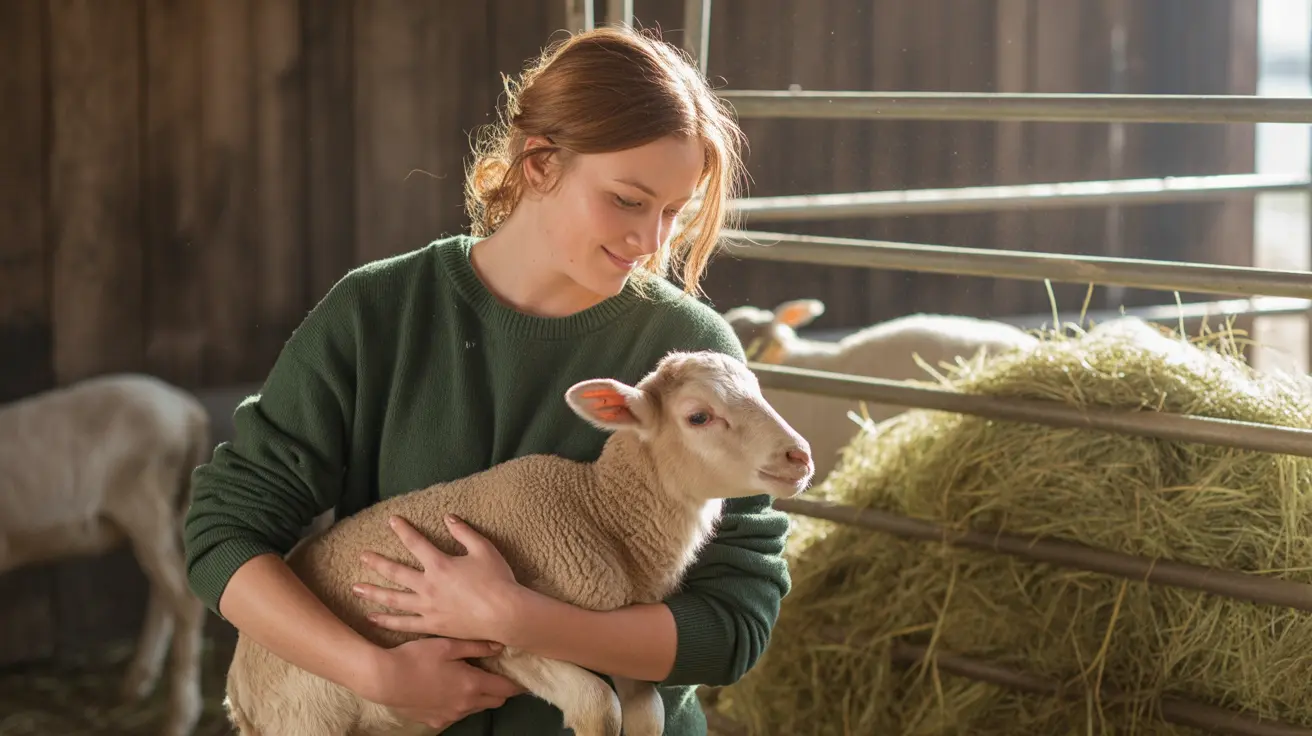For students considering animal science careers, the journey from classroom theory to real-world application can be transformative. Olivia Hoffman, an animal science major at NC State's College of Agriculture and Life Sciences (CALS), discovered this firsthand through her involvement with the Animal Science Club and undergraduate research opportunities. Her experience illustrates how hands-on exposure to livestock and research can completely reshape a student's perspective on their future career trajectory.
The field of animal science offers diverse career paths, from veterinary medicine to agricultural management, but many students struggle to identify which direction aligns with their interests and strengths. Hoffman's story demonstrates how practical experience with animals, combined with research opportunities, can provide the clarity needed to make informed career decisions in this expanding field.
The Power of Undergraduate Research in Animal Science
Undergraduate research animal science programs provide students with invaluable exposure to scientific methodology and real-world problem-solving. These experiences go beyond textbook learning, allowing students to work directly with faculty members on ongoing research projects that address current challenges in animal health, nutrition, and welfare.
Research opportunities in animal science typically involve data collection, laboratory analysis, and field work with various species. Students gain technical skills in areas such as animal nutrition analysis, breeding program evaluation, and health monitoring protocols. These hands-on experiences often reveal career interests that students hadn't previously considered, opening doors to specialized fields within animal science.
Animal Science Club Benefits for Career Development
Student organizations like the Animal Science Club serve as bridges between academic learning and professional development. These clubs typically offer members direct access to livestock animals, industry professionals, and networking opportunities that prove invaluable for career planning.
The hands-on animal science experience gained through club participation includes animal handling, feeding protocols, and basic husbandry practices. Members often participate in livestock shows, farm visits, and industry conferences that provide real-world context for their studies. These activities help students understand the practical applications of their coursework while building confidence in working with animals.
Diverse Animal Science Degree Jobs and Career Paths
The animal science job outlook remains positive, with opportunities spanning multiple industries. Graduates can pursue careers in veterinary medicine, livestock production, animal nutrition, pharmaceutical research, and government agencies focused on animal welfare and food safety.
Common animal science career paths include:
- Veterinary medicine and animal health services
- Livestock production and ranch management
- Animal nutrition and feed development
- Research and development in biotechnology
- Government regulatory positions
- Animal welfare and conservation roles
The animal science salary range varies significantly based on specialization and location, with entry-level positions typically starting around $35,000-$45,000 annually, while specialized roles in research or veterinary medicine can reach $70,000 or higher.
Essential Animal Science Skills for Success
Developing strong animal science skills requires both technical knowledge and practical experience. Key competencies include animal handling and husbandry, understanding of animal physiology and nutrition, data analysis and research methodology, and communication skills for working with diverse stakeholders.
Students who gain livestock experience through clubs and internships develop crucial skills in animal behavior assessment, health monitoring, and safe handling practices. These competencies prove valuable regardless of the specific career path chosen within animal science.
Animal Science Career Guidance and Next Steps
For students considering animal science careers, early exposure to hands-on experiences is crucial. Seeking out animal science internship opportunities, joining relevant student organizations, and engaging in undergraduate research can provide the practical foundation needed for career success.
Animal science student organizations offer structured pathways to gain experience while building professional networks. These connections often lead to internship opportunities and job placements after graduation, making club participation a strategic career move.
Frequently Asked Questions
How can hands-on experience with animals help me decide on a career in animal science?
Direct interaction with animals through clubs, internships, or research projects allows students to discover their preferences for different species and work environments. This practical exposure helps identify whether you're drawn to large animal veterinary work, livestock production, or research settings, providing clarity that classroom learning alone cannot offer.
What are the most common career paths for animal science majors after graduation?
The most popular career paths include veterinary medicine, livestock production management, animal nutrition consulting, pharmaceutical research, and government positions in food safety or animal welfare. Many graduates also pursue careers in biotechnology companies, agricultural extension services, or academic research institutions.
Do animal science clubs or research programs really make a difference for students interested in working with pets or livestock?
Yes, these programs provide essential hands-on experience that employers highly value. Students who participate in clubs and research projects develop practical skills, professional networks, and confidence in animal handling that gives them a significant advantage in the job market. Many employers specifically seek candidates with demonstrated experience beyond classroom learning.
Conclusion
Olivia Hoffman's experience at NC State demonstrates how hands-on opportunities can transform an animal science student's career perspective. Through club participation and undergraduate research, students gain the practical skills and industry connections needed to succeed in this diverse field.
For aspiring animal science professionals, seeking out these experiential learning opportunities early in your academic career can provide the foundation for a rewarding and successful career path. Whether your interests lie in veterinary medicine, livestock production, or research, hands-on experience remains the key to unlocking your potential in animal science careers.






